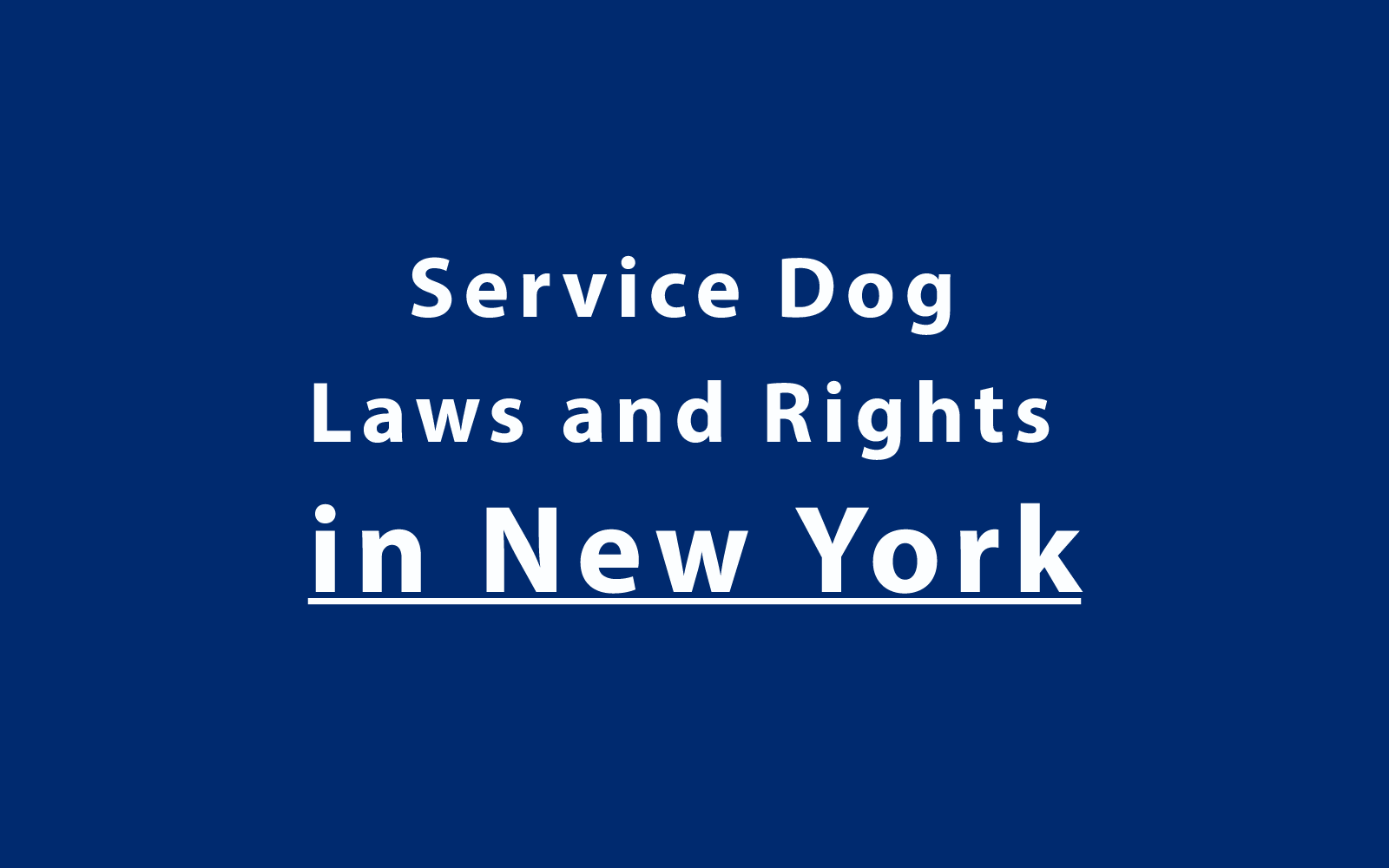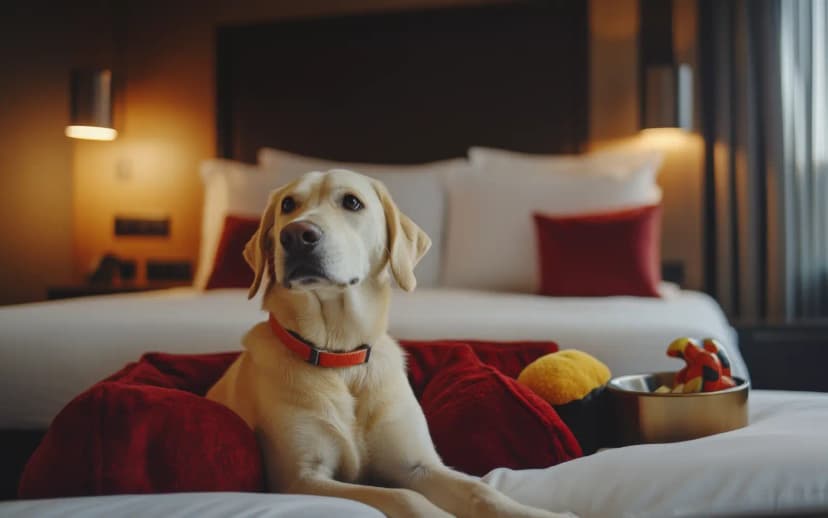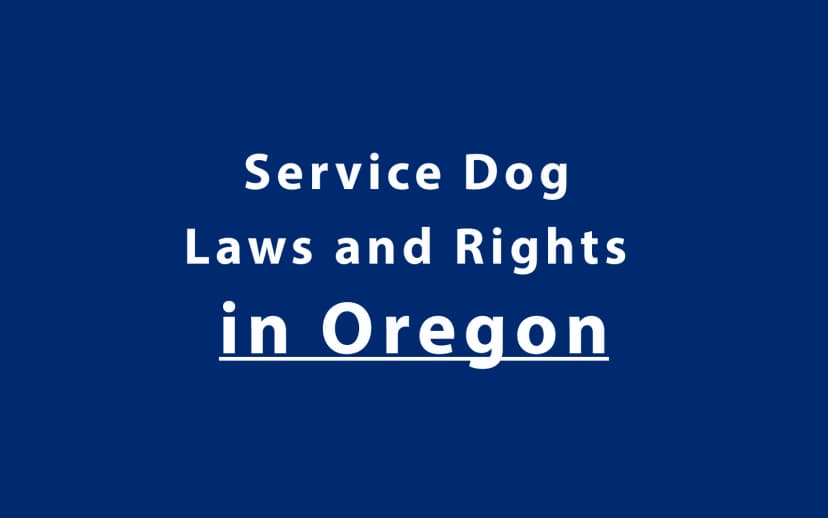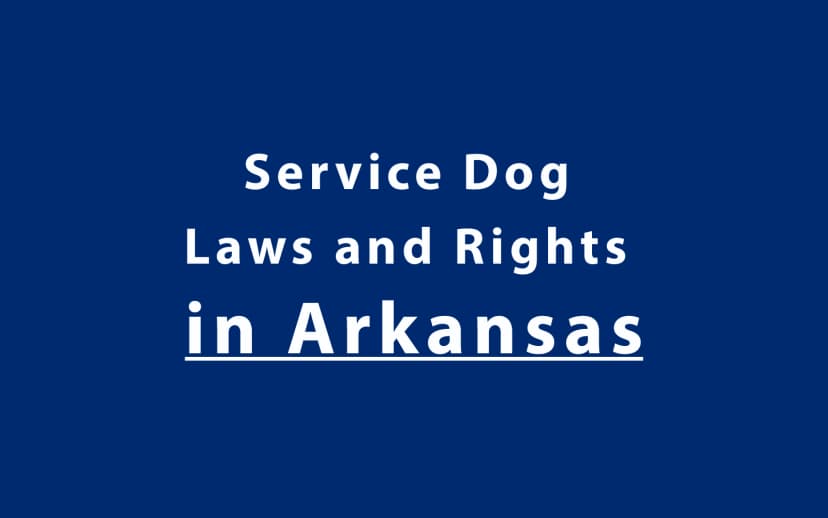Service Dog Laws and Rights in New York

For thousands of New Yorkers living with physical, psychiatric, or sensory disabilities, a service dog is more than a companion—it’s an essential partner in daily life. Service dogs are trained to perform specific tasks that mitigate the effects of a person’s disability, offering greater independence, confidence, and mobility.
In New York, as in all U.S. states, the rights of service dog handlers are protected by a combination of federal and state laws. But while the Americans with Disabilities Act (ADA) lays the foundation, New York State Human Rights Law builds on it with additional enforcement mechanisms and clarity. This 2025 guide breaks down everything you need to know about public access, housing, employment, travel, training, and legal protections for service dog handlers in New York.
1. What Qualifies as a Service Dog in New York?
Under the ADA, a service dog is defined as a dog that has been individually trained to perform tasks or do work for a person with a disability. These tasks must be directly related to the person’s disability. Examples include:
- Guiding a person who is blind
- Alerting to an oncoming seizure or low blood sugar
- Providing balance support
- Interrupting self-harming behavior
- Reminding someone to take medication
- Performing deep pressure therapy during panic attacks
New York State law aligns with this definition and supports full access rights for service dogs that meet these criteria.
🛑 Important: Emotional Support Animals (ESAs) and therapy dogs do not qualify as service dogs under the ADA or New York law, even if they provide comfort. They are not trained to perform specific disability-related tasks.
2. Public Access Rights in New York
Under the ADA and the New York State Human Rights Law, individuals with service dogs are allowed to access virtually all public accommodations. This includes:
- Restaurants and coffee shops
- Grocery stores and retail outlets
- Public parks and recreation areas
- Hotels and motels
- Hospitals and medical clinics
- Museums, theaters, and event venues
- Government buildings and public offices
Responsibilities of service dog handlers include:
- Keeping the dog under control at all times, usually with a leash, harness, or tether.
- Ensuring the dog is housebroken and not disruptive.
- Accepting that a business can ask the handler to remove the dog if it is out of control or poses a direct threat.
What can a business ask?
If your disability is not apparent, staff may ask:
- Is this a service animal required because of a disability?
- What tasks or work has the animal been trained to perform?
They cannot ask for documentation, demand the dog perform a task, or inquire about your medical condition.
3. Service Dog Rights in Housing
New Yorkers with disabilities are protected under the Fair Housing Act (FHA), which prohibits discrimination against individuals who require assistance animals, including service dogs, in nearly all types of housing—even those with “no pets” policies.
Your rights include:
- Reasonable accommodations in apartments, condos, and rental homes.
- Landlords may not charge pet fees, deposits, or breed/size restrictions for service dogs.
- Landlords may request documentation if the disability and need for the dog are not obvious. However, they cannot demand training certificates or use of any registry.
If you are denied housing or face discriminatory treatment, you can file a complaint with:
- The New York State Division of Human Rights
- The U.S. Department of Housing and Urban Development (HUD)
4. Employment Rights in New York
Under ADA Title I, employees with disabilities have the right to request reasonable accommodations, including the use of a service dog in the workplace.
What you should know:
- Employers must engage in an interactive process to determine reasonable accommodations.
- You may be required to provide a letter from a medical professional confirming your disability and the functional benefit of the dog.
- Employers may only deny the accommodation if it creates an undue hardship (e.g., significant disruption or expense).
In New York, the Human Rights Law also enforces workplace disability protections. If you’re experiencing discrimination, file a complaint with:
- The New York State Division of Human Rights
- The Equal Employment Opportunity Commission (EEOC)
5. Access to Air and Ground Transportation
Air Travel:
Service dog rights during air travel are governed by the Air Carrier Access Act (ACAA). As of 2021, only dogs that are trained to assist a person with a disability are permitted to fly in the cabin free of charge.
What you’ll need to fly with a service dog:
- U.S. DOT Service Animal Transportation Form, confirming the dog is trained and well-behaved.
- Advanced notice to the airline, usually 48 hours before your flight.
- Your dog must fit in the handler’s foot space and remain under control at all times.
Ground Transportation in New York:
- Subways and buses (MTA): Permitted for service dogs, as long as the dog is leashed or in a harness.
- Amtrak: Allows service dogs per ADA guidelines.
- Taxis and rideshares (Uber, Lyft): Legally required to accept service dogs. A driver refusing to do so may face fines or removal from the platform.
6. Service Dogs in Educational Settings
K–12 Public Schools:
Students with disabilities who use service dogs are protected under Section 504 of the Rehabilitation Act and the Individuals with Disabilities Education Act (IDEA). Public schools in New York must allow a trained service dog to accompany a student during the school day.
Colleges and Universities:
Higher education institutions, both public and private, fall under the ADA. Students are not required to register their service dog, but they should notify Disability Services in advance and provide relevant documentation.
📝 Tip: Schools may ask for proof that the dog is necessary due to a disability and that it is trained, but they cannot require certification or licensing.
7. Service Dog Registration and Training in New York
Contrary to popular belief, New York State does not require any special license, ID, or registration for service dogs. You are not legally obligated to carry paperwork or buy a vest.
However, many handlers choose to voluntarily:
- Register their service dog to avoid unnecessary confrontations.
- Display an ID or wear a vest to visually signal the dog’s status.
- Carry a task list or training summary, especially in housing or travel scenarios.
At AssistanceDogPartners.org, we provide:
- Optional service dog registration with official ID and documentation.
- Online training programs tailored for psychiatric, mobility, and medical alert tasks.
- Tools to help your dog pass a public access test (PAT).
Whether you train your dog yourself or work with a professional, ensure they meet the standard of behavior and task performance expected in public settings.
8. Misrepresentation and Service Dog Fraud
Falsely claiming a dog as a service animal is not only unethical—it’s illegal in New York.
Under New York State General Business Law Section 121, misrepresenting a pet as a service dog can result in:
- Fines or misdemeanor charges
- Community service requirements
- Possible civil liability if harm or disruption is caused
This includes:
- Using fake service dog vests or ID cards
- Bringing untrained or disruptive dogs into public spaces
- Misleading landlords or employers about a dog’s status
If you witness or suspect fraud, contact local law enforcement or the New York State Division of Human Rights.
9. Resources for New York Handlers
There are many local resources available to support service dog users in New York:
New York State Division of Human Rights
File discrimination complaints and learn more about public access rights.
Disability Rights New York (DRNY)
Legal advocacy and representation for individuals with disabilities.
Service Dog Training Schools
Located across NYC, Buffalo, Albany, Rochester, and Syracuse.
Vocational Rehabilitation Services (ACCES-VR)
Help with employment placement and reasonable accommodations.
10. Frequently Asked Questions
Q: Can a business ask for documentation for my service dog?
A: No. They can only ask two questions: if the dog is required because of a disability, and what tasks it performs.
Q: Are psychiatric service dogs protected under the law in New York?
A: Yes. As long as they are trained to perform specific tasks related to a disability, PSDs are fully protected under both federal and state law.
Q: Can a landlord in New York charge me a pet deposit for a service dog?
A: No. Service dogs are not considered pets, and landlords cannot impose pet fees or breed restrictions.
Q: How can I prove my dog is a service dog if no certification is required?
A: While not legally required, voluntary registration from reputable sites like AssistanceDogPartners.org can provide helpful documentation and identification tools.
Conclusion
New York has clear and robust protections for individuals who rely on service dogs, covering every major area of public life—from housing and employment to travel and education. By knowing your rights and responsibilities, you can confidently navigate the world with your service dog at your side.
At AssistanceDogPartners.org, we’re here to help you through every step of your journey—whether you’re training your first service dog, seeking legal clarity, or simply looking to register your dog for added peace of mind.
Stay informed. Stay empowered. And remember: your service dog is not just welcome in New York—they’re protected by law.



